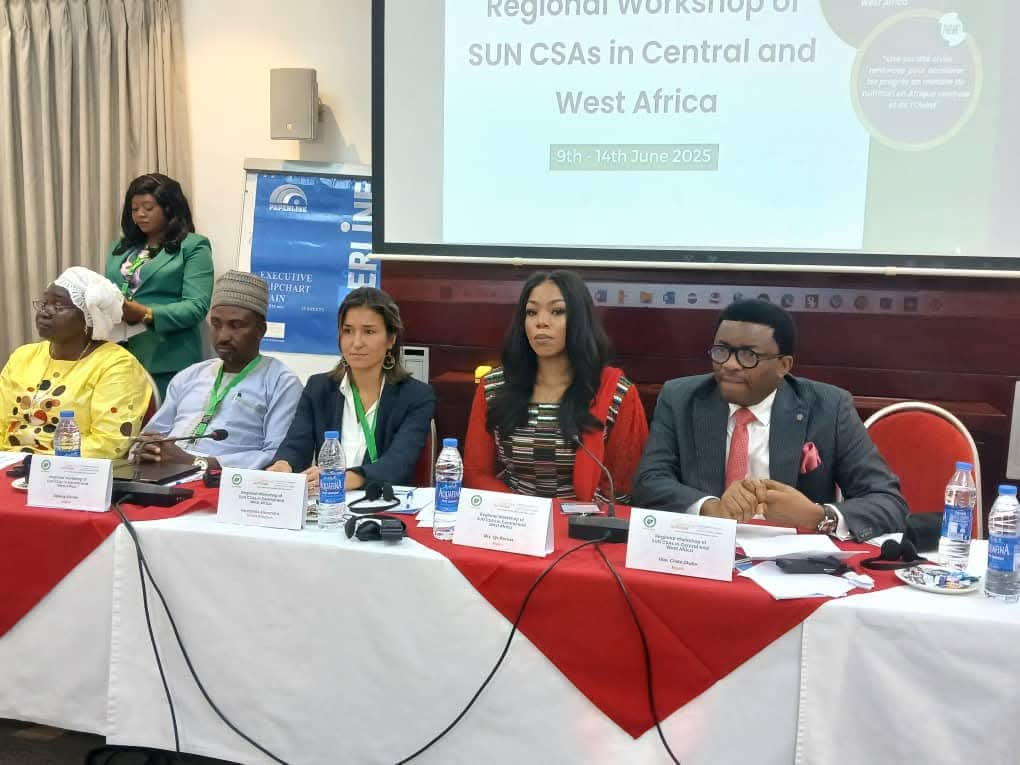
Rep. Chike Okafor Urges Bold Action on Nutrition and Food Security at SUN Regional Meeting
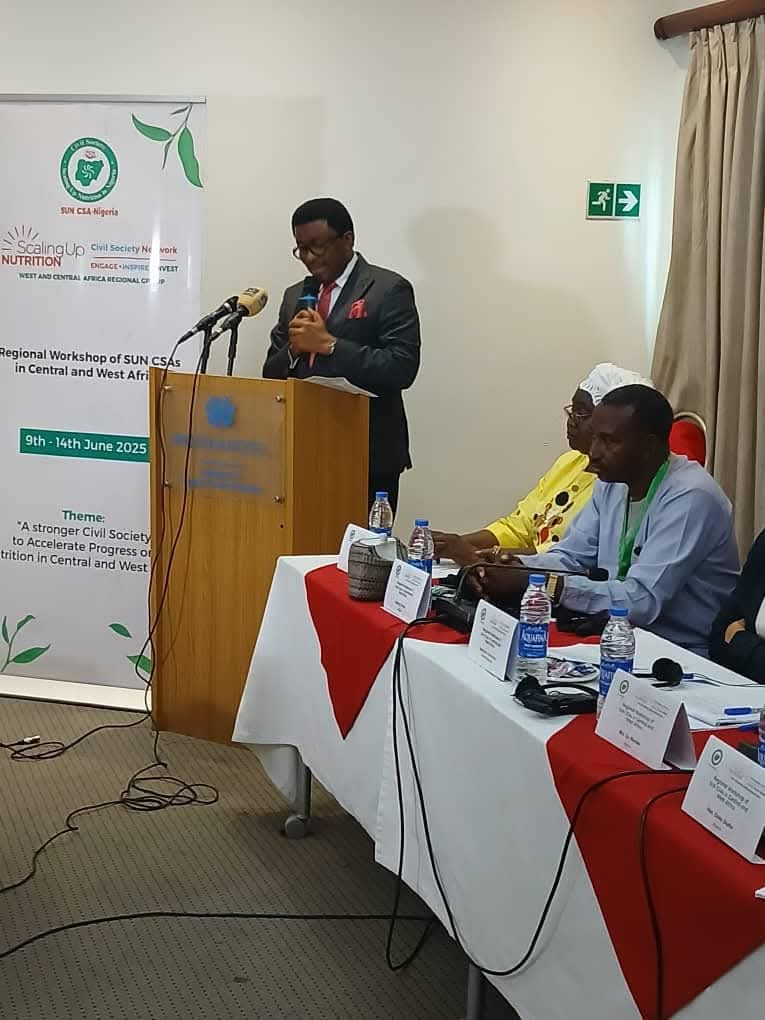
The Chairman of the House of Representatives Committee on Nutrition and Food Security, Hon. Chike Okafor, Ph.D, has called for urgent and coordinated action to tackle Nigeria’s growing challenges of malnutrition and food insecurity.
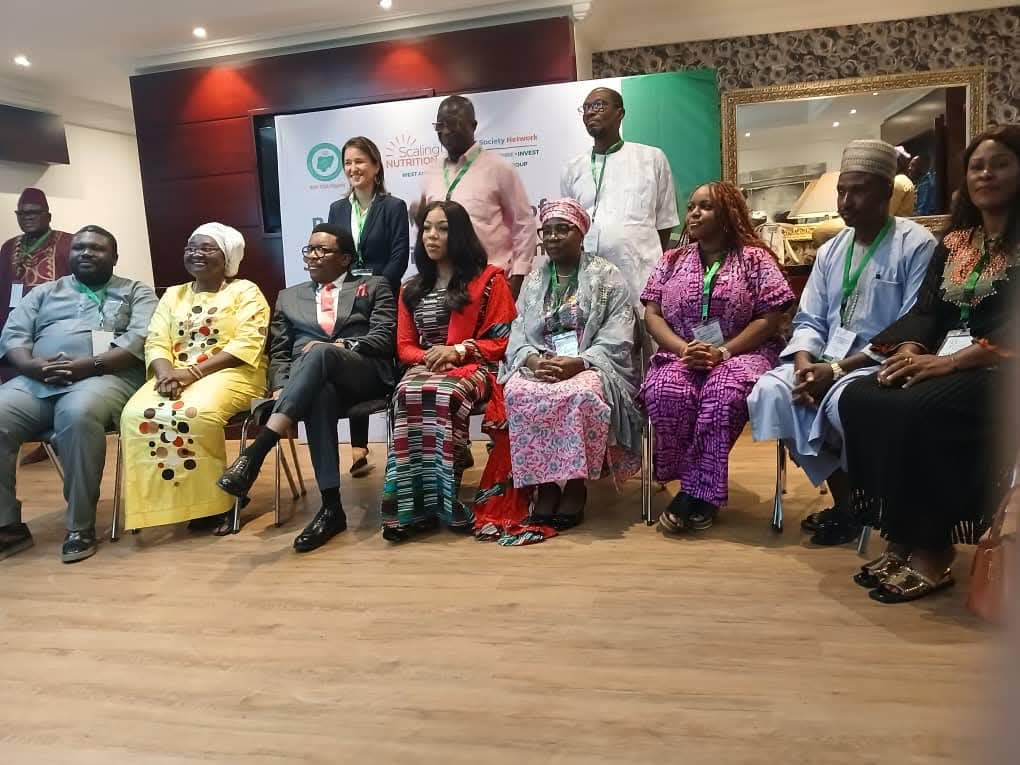
He made this call while delivering remarks at the SUN CSA/SUN CSN Regional Meeting for West and Central Africa, held at Protea Hotel, Kuramo Waters Close, Victoria Island, Lagos on Tuesday, 10th June, 2025.
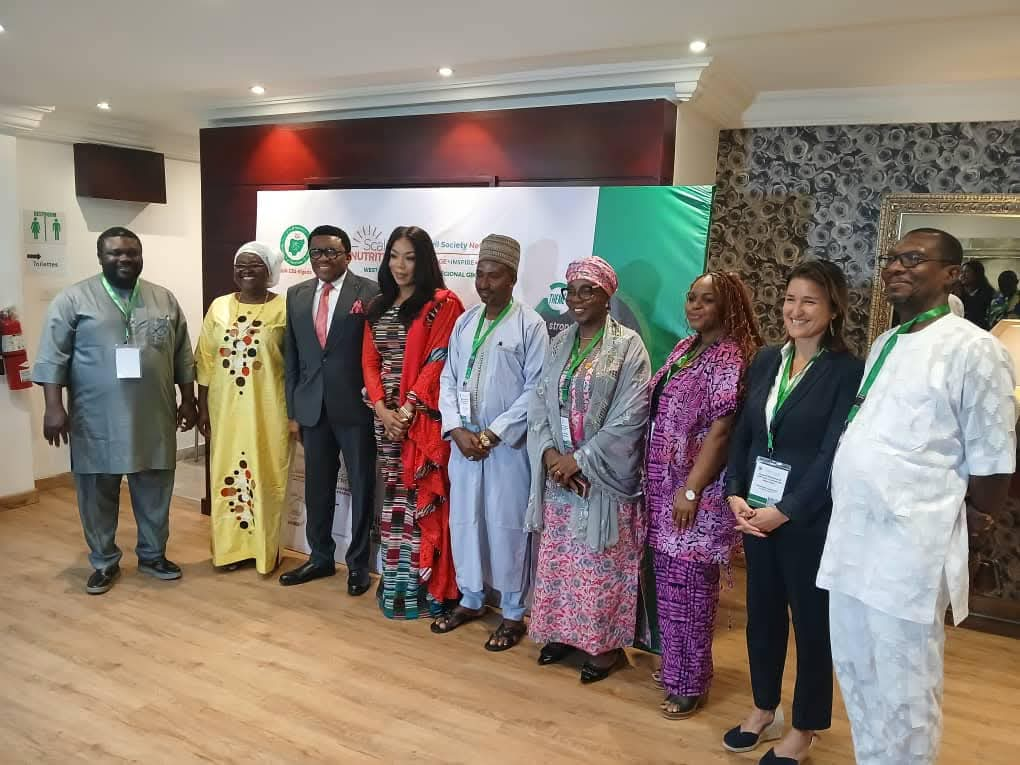
The week-long meeting, which was declared open by the lawmaker, runs from June 10 to June 16, 2025.
Addressing a high-level gathering of civil society leaders, development partners, and nutrition advocates, Hon. Okafor emphasized the need to re-evaluate the impact of interventions under the global Scaling Up Nutrition (SUN) movement, which has been active in over 60 countries since its launch by former UN Secretary-General Ban Ki-moon in 2010.
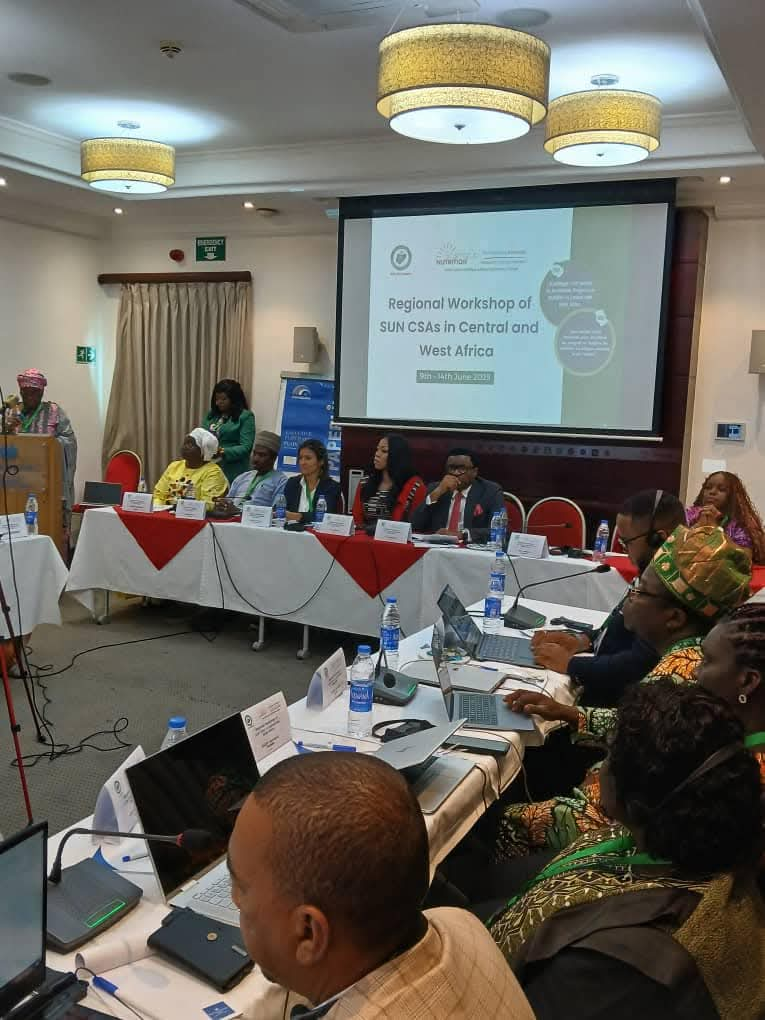
Okafor painted a stark picture of Nigeria’s nutrition crisis, citing data from the 2023/2024 Nigeria Demographic Health Survey, which shows stagnation or deterioration in key indicators including child malnutrition, maternal anaemia, antenatal attendance, and skilled birth deliveries.
He further attributed these setbacks to disruptions from the COVID-19 pandemic, climate change, post-harvest losses, and rising food inflation.
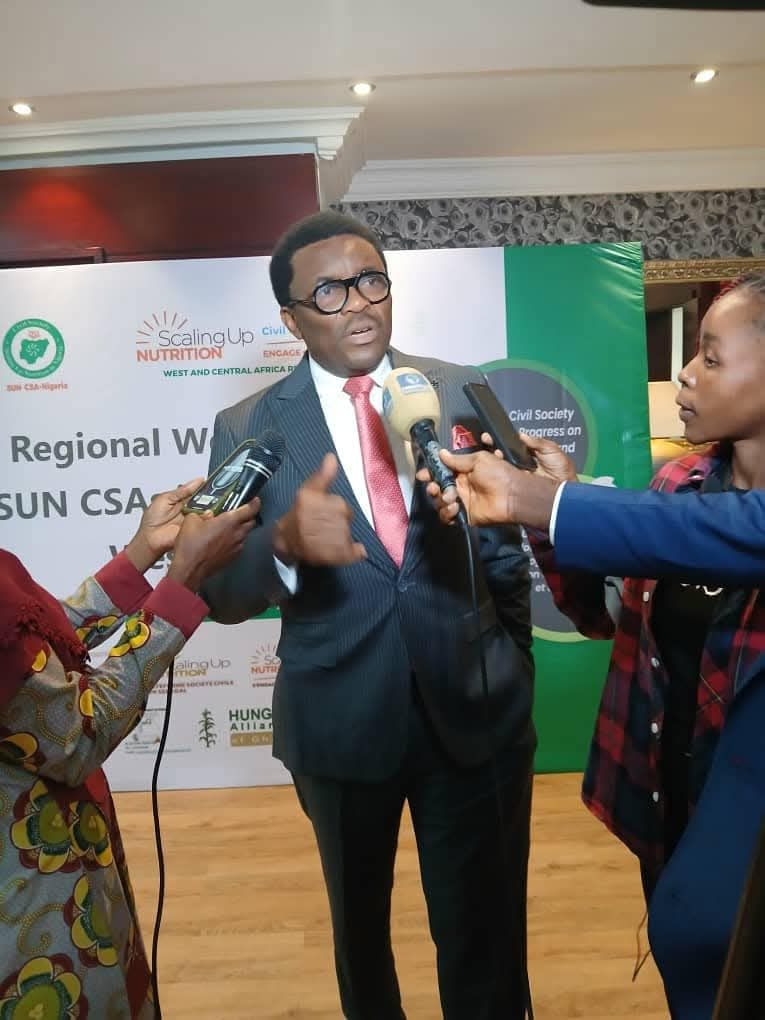
“These challenges are not just health concerns—they impact economic productivity, governance, and social cohesion”. He warned.
Okafor in highlighting legislative efforts, announced that the 10th National Assembly, under Speaker Rt. Hon. Tajudeen Abbas, had inaugurated Nigeria’s first-ever Committee on Nutrition and Food Security on February 29, 2024.
This historic move was followed by a major retreat in Owerri in May, which led to the creation of the National Legislative Network on Nutrition and Food Security.
The network, which includes chairpersons of nutrition-related committees from all 36 State Assemblies, has begun implementing a strategic work plan focused on lawmaking, budget appropriation, oversight, and citizen representation.
He acknowledged the pivotal support of the Civil Society-Scaling Up Nutrition in Nigeria (CS-SUNN) in driving these milestones.
Okafor outlined a robust legislative agenda aimed at aligning nutrition and food security laws with global standards while addressing local realities.
Amongst these is a bill to extend maternity leave to six months, a measure expected to improve child nutrition through extended breastfeeding.
Another proposed bill seeks to prohibit the sale of bulk oil in open markets to curb adulteration and protect public health.
He also noted ongoing efforts to harmonize conflicting laws across Nigeria’s 36 states and the FCT.
“Better girl-child nutrition boosts education, reduces adolescent pregnancy, and improves maternal outcomes. These issues are interconnected and require holistic solutions,” he noted.
Hon. Okafor called for increased and sustainable funding for nutrition-sensitive and nutrition-specific interventions through dedicated budget lines at federal, state, and local levels.
He urged stronger private sector participation to complement government funding and support initiatives like school feeding and homestead gardening.
On oversight, he stressed that beyond securing more funds for nutrition, it is crucial to ensure that resources are effectively utilized.
He then raised concerns over a lack of parliamentary scrutiny on the budgets of some development partners and international agencies implementing nutrition programs in Nigeria.
“Why are these stakeholders not subjected to legislative oversight, especially when they operate within our national and sub-national spaces?” he queried.
The lawmaker underscored the importance of citizen representation in sustaining nutrition interventions.
“Community mobilization and behavioural change are key to eliminating harmful cultural practices that hinder optimal nutrition, especially for girls,” he said.
Quoting findings from the recently launched “Cost of Inaction” tool, Okafor revealed that global cognitive and mortality losses due to malnutrition cost about $761 billion annually, with Nigeria alone losing an estimated $2 billion yearly to post-harvest food losses.
In conclusion, Hon. Okafor called for participatory transparency in the implementation of nutrition programs, urging all stakeholders; national and international to align their efforts with the aspirations of the Nigerian people.
“We cannot continue to do the same things repeatedly and expect different results. The time to act is now.
“Working together, we can change Nigeria’s nutrition outcomes in line with President Bola Ahmed Tinubu’s Renewed Hope Agenda.” He declared.


